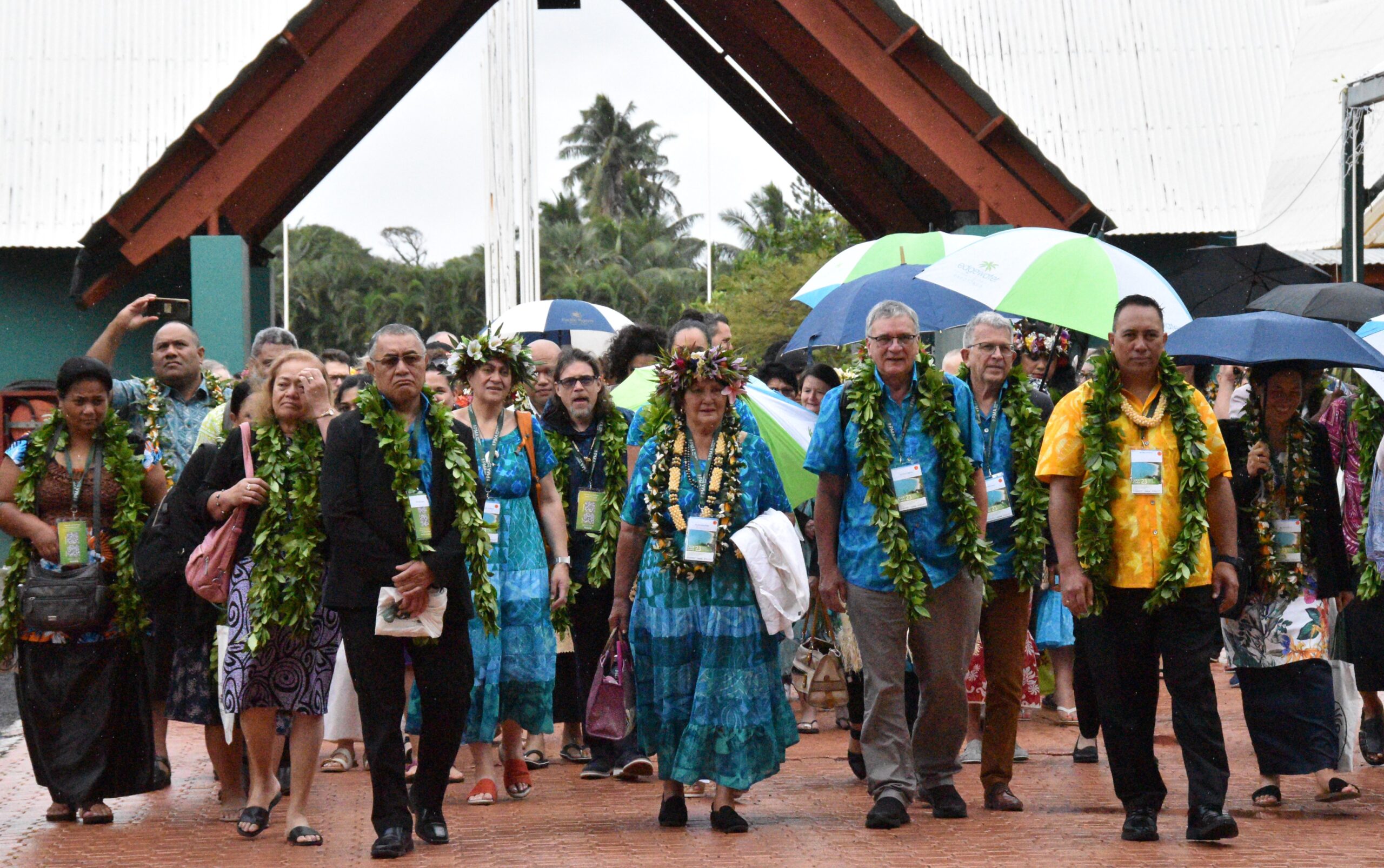Thomas Wynne: The darkest and longest shadow . . .
Saturday 9 September 2023 | Written by Thomas Tarurongo Wynne | Published in Editorials, Opinion

“Te ‘Akirata ‘Ou – The New Dawn", was the theme for the Pasifika Medical Association conference held in the Cook Islands this week. MELINA ETCHES / 23090610
Watch a movie like Moana Roa, or any movie prior to the 1960s in the Cook Islands, and what a stark contrast it is, of our people before the proliferation of a western diet, and just how fit, lean and active we were.
It’s the quiet conversation we all have when we look at ourselves not so long ago as we attend yet another funeral, as the NCD epidemic slowly slithering its way through our families, picks of those we love and takes them from a life they should have lived earlier, quicker and more suddenly then we could have anticipated.
“Te ‘Akirata ‘Ou – The New Dawn", is the theme for the Pasifika Medical Association conference held in the Cook Islands this week, and what a celebration it is of our leadership in this field as Cook Islanders, and of the need for more conferences like these to change the storm blowing through our nation and communities especially with regard to deaths by non-communicable disease.
Dawn is the beginning of a new day, it is the first inkling on the horizon, that the Sun will rise again after its disappearance and sunset, and the certainty that it will shine on us again.
But what does a new dawn hold for the health prospects for Cook Islands peoples both at home and here in Aotearoa, and what does that new day look like as the new Sun’s rays cast a long shadow on the health and wellbeing of us all.
The darkest and longest shadow is the long dark shadow of non-communicable diseases, which in layman’s terms simply means, a sickness that is not caught from someone else - a sickness that according to World Health Organization is long in duration and often the result of a combination of genetic, physiological, environmental and behavioral factors. Otherwise known as what we do, what we don’t do what we eat, what we don’t eat and the general emotional /spiritual and physical well-being of our people.
The main types of NCDs that affect the Cook Islands are cardiovascular diseases (such as heart attacks and stroke), cancers, chronic respiratory diseases asthma and diabetes.
We all know of people that have died of this disease, and the sad reality is for the most part their early death was avoidable, as was often the having heart disease or other complications simply because of the decisions we now make with regard to food, work, exercise and our way of life.
According to the TMO report 2021-2022, 5500 people were diagnosed in the Cook Islands with an NCD, with the majority of cases now living with other comorbidities.
This consisted of 51% female and 49% male which sadly represents 59% of Cook Islands resident population between the ages of 15 and 64 years.
That’s nearly 60 per cent of everyone over the age of 15 that we see, each and every day and 45% between the ages of 50-69.
What is of greater concern is that NCDs remain the main cause of deaths in the Cook Islands reflecting an annual average of 72% for deaths in the last four years with about 25% occurring prematurely.
Let me say that again, nearly a quarter of the deaths that happen in the Cook Islands from NCDs happen before their time, our people, our Metua our Papas and Mamas, our mums, our dads, our brothers and sisters, dying before their time because of the choices we now make with regard to food, exercise and lifestyle.
PMA President, Dr Kiki Maoate, said “This conference and the work we’re able to do is the result of key relationships and working together to meet the needs of our families.”
Our work is all about families. We are successful today because we listen to our families, and that If we believe in our people and their pathways, we create a better future for our communities.”
If Covid-19 taught us anything it is these two things - a governments budget, is where its heart is and what it deems to be important, because we need more budget to make health work, more budget to bring more doctors and nurses, health and mental health professionals, and secondly that the answers for change, as Dr Maoate aptly said, lay within our communities and our people.
As someone that can testify to the real change health intervention can bring, I firmly believe, If you change a community, you also change the new dawn that community will wake up to tomorrow.














































